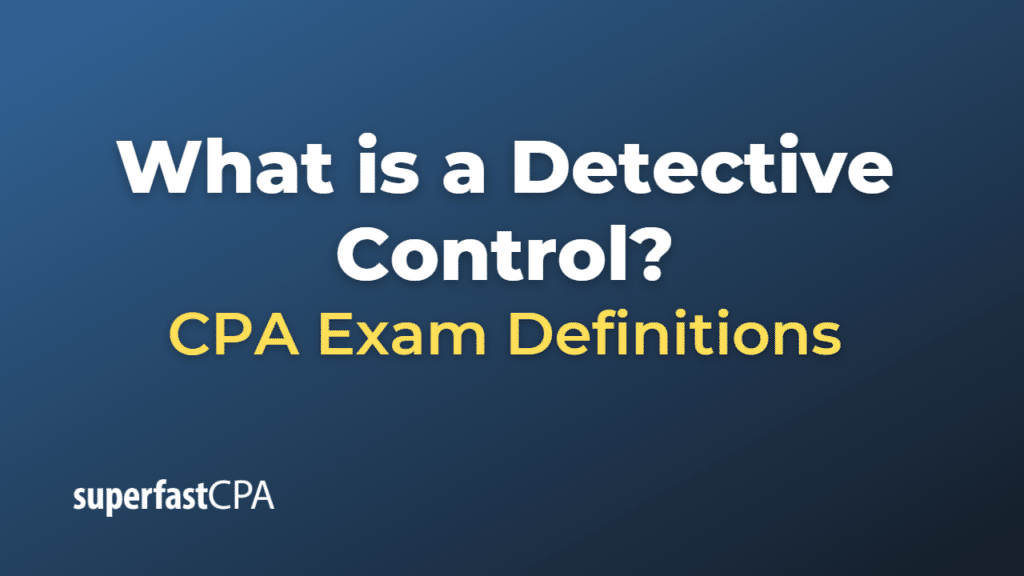Detective Control
In the context of internal controls within an organization, “detective controls” are procedures that are designed to identify and alert management or other relevant parties about errors, irregularities, or fraud that have already occurred. The purpose of these controls is to detect unwanted events promptly, so they can be corrected or mitigated as quickly as possible.
Examples of detective controls include:
- Reconciliations: Comparing records from different sources to identify discrepancies. For example, bank reconciliations involve comparing the company’s cash records with the bank’s records to identify any differences that need to be investigated.
- Physical Inventory Counts: Physically counting items in inventory and comparing the count to the inventory records to identify any discrepancies, which might indicate problems like theft, loss, or recording errors.
- Exception Reports: Using computer systems to generate reports that highlight transactions or events outside of normal limits or expectations. For example, an exception report might flag sales transactions that were cancelled and then re-entered, which could indicate an attempt at fraud.
- Reviews of Performance: Comparing actual results to budgets, forecasts, or prior period results to identify unexpected variances. Significant variances might indicate problems that need to be investigated, such as falling sales, rising costs, or unanticipated expenses.
- Audits: Both internal and external audits act as detective controls by examining transactions, records, and procedures to identify errors, non-compliance, or fraud.
Detective controls are an important complement to “preventive controls”, which are designed to prevent errors, irregularities, or fraud from occurring in the first place. Together, these controls help an organization to maintain accurate records, protect its assets, ensure compliance with laws and regulations, and promote efficient and effective operations.
Example of a Detective Control
Let’s consider a retail business as an example to understand how detective controls work.
- Reconciliations: Every month, the accounting department reconciles the bank statements with the company’s internal records of cash receipts and disbursements. This helps identify any discrepancies, such as unrecorded transactions, timing differences, or potential bank errors.
- Physical Inventory Counts: The store manager performs a surprise physical count of high-value items on a weekly basis and compares the count to the inventory records. Any discrepancies might indicate theft, spoilage, or recording errors that need to be investigated and corrected.
- Exception Reports: The company’s point-of-sale system generates daily exception reports that highlight unusual transactions, such as sales returns above a certain amount or multiple sales cancellations by the same cashier. These could be signs of potential fraudulent activity.
- Reviews of Performance: Each quarter, the company’s management team reviews a report comparing actual sales and expenses to the budget, with explanations for any significant variances. This helps identify any operational issues, such as declining sales in a particular product line or unexpected increases in costs.
- Audits: The company’s internal audit team performs regular audits of different areas, such as cash handling procedures, inventory management, and payroll processing. They report their findings and recommendations to the management and the board’s audit committee. An external audit firm also performs an annual audit of the company’s financial statements to provide an independent opinion on their fairness and accuracy.
These detective controls help the company to quickly identify and correct any issues that arise, thereby minimizing any potential harm to the business. They also provide valuable information for improving operations and decision-making.













